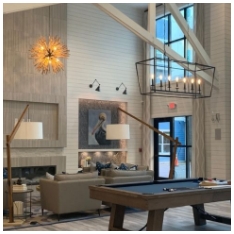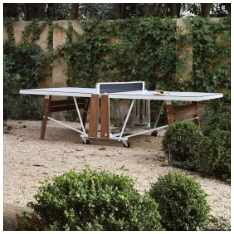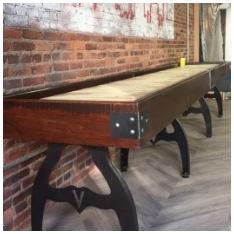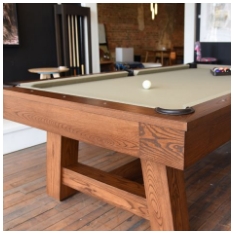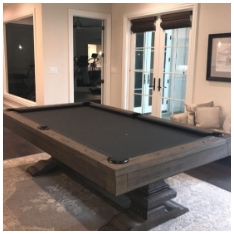Taking proper care of your pool cue is crucial if you want to preserve its performance and value. A well-maintained cue not only ensures consistent gameplay but also helps avoid costly repairs or replacements. In this guide, we will cover important Pool Cue Maintenance Tips to Extend Its Lifespan, ensuring your cue remains in excellent condition over time.
Why Pool Cue Maintenance is Important
A pool cue is an investment for any billiards player. Whether you are a beginner or an experienced player, neglecting cue maintenance can lead to damage that affects your shots. Over time, cues can warp, tips can wear out, and ferrules can accumulate chalk and dirt, all contributing to diminished performance. Regular maintenance extends the lifespan of your cue and ensures consistent play.

Basic Pool Cue Maintenance Tips to Extend Its Lifespan
Clean the Cue Shaft Regularly
Dirt, oil, and chalk residue can build up on your cue shaft after each use. This buildup not only affects the smoothness of your stroke but can also damage the shaft’s finish over time.
- Wipe the shaft after each session with a soft, dry cloth.
- Occasionally use a slightly damp cloth (never wet) followed by immediate drying.
- For deeper cleaning, use a special cue shaft cleaner recommended by the manufacturer.
Cleaning ensures that your cue remains smooth and comfortable to handle, one of the simplest but vital Pool Cue Maintenance Tips to Extend Its Lifespan.
Protect the Cue Tip
The tip is one of the most important parts of a pool cue. A well-maintained tip allows better control over the cue ball.
- Shape the tip regularly to maintain its rounded contour.
- Scuff the tip lightly to maintain good chalk retention.
- Replace the tip when it becomes too thin or hard.
Tip care is essential for preserving your ability to apply spin and make accurate shots.
Avoid Extreme Temperatures
Wooden cues are highly sensitive to temperature and humidity changes. Exposure to extreme heat or cold can cause the cue to warp or crack.
- Never leave your cue in a hot car or near heaters.
- Avoid exposing the cue to direct sunlight for prolonged periods.
- Store your cue in a climate-controlled environment whenever possible.
Proper storage is one of the most effective Pool Cue Maintenance Tips to Extend Its Lifespan that players often overlook.

Proper Storage Techniques
Use a Cue Case
A cue case is not just for easy transportation; it protects your cue from environmental hazards, accidental drops, and impacts.
- Choose a hard case for better protection.
- Ensure the case is clean and dry inside.
- Always store the cue in the case when not in use.
Keep the Cue Straight
A warped cue is a common result of improper storage.
- Always store your cue vertically or flat in its case.
- Avoid leaning the cue against a wall for long periods.
- Regularly inspect your cue for signs of warping by rolling it on a flat surface.
Maintaining the straightness of your cue is crucial for optimal play and is an integral part of Pool Cue Maintenance Tips to Extend Its Lifespan.
Handling Your Cue Properly
Chalk Properly
Chalking improperly can lead to chalk dust spreading on the ferrule and shaft, which causes buildup and can scratch the cue.
- Chalk by holding the cube steady and twisting the cue tip on it.
- Avoid over-chalking or tapping the chalk onto the tip.
Avoid Slamming or Dropping
Physical shocks can damage the shaft or joints of your cue.
- Handle your cue gently.
- Avoid hitting the cue against tables, floors, or walls.
- Use a cue holder when waiting for your turn during matches.
Tighten and Loosen the Joints Carefully
For two-piece cues, the joint area must be handled carefully.
- Assemble and disassemble the cue with gentle twisting motions.
- Avoid overtightening, which can damage the joint collars.
Proper joint care is a key factor among the Pool Cue Maintenance Tips to Extend Its Lifespan.
Periodic Professional Maintenance
While personal maintenance is critical, sometimes your cue needs professional attention.
Professional Cleaning and Polishing
A professional cleaning service can restore the smoothness of your shaft and polish your cue without removing too much wood.
- Consider a professional cleaning once a year if you play frequently.
- Polishing can help maintain the cue’s finish and protect against moisture.
Ferrule and Tip Replacement
Ferrules can get stained or damaged over time.
- Replace or professionally clean ferrules if they become dirty or scratched.
- Replace the tip professionally if you are unsure about doing it yourself.
Trusting experts for critical repairs will prevent mistakes that might shorten your cue’s life.
Signs Your Pool Cue Needs Maintenance
Recognizing early warning signs can prevent further damage.
- Sticky or rough shaft during strokes.
- Worn-out or cracked tip.
- Loose joints or rattling sounds.
- Warped shaft detected during rolls.
Addressing these issues quickly is part of effective Pool Cue Maintenance Tips to Extend Its Lifespan.
Mistakes to Avoid in Pool Cue Maintenance
Even with the best intentions, some common mistakes can cause harm:
- Over-cleaning: Excessive use of abrasive materials can wear down the shaft.
- Neglecting the case: A dirty or moist cue case can transfer dirt and moisture to your cue.
- DIY repairs without skill: Attempting to fix tips, ferrules, or joints without proper tools and knowledge can cause irreparable damage.
Maintaining your cue requires patience and proper techniques, not shortcuts.
Conclusion
Keeping your pool cue in top condition is not complicated, but it does require consistent care. By following the correct Pool Cue
Maintenance Tips to Extend Its Lifespan, you can protect your investment, improve your game, and enjoy years of reliable performance. Simple practices like regular cleaning, careful handling, proper storage, and timely professional maintenance make a significant difference.
Whether you are a casual player or a competitive enthusiast, maintaining your cue is part of respecting the game and enhancing your skill. Follow these tips, and your pool cue will continue to serve you well in every match.

